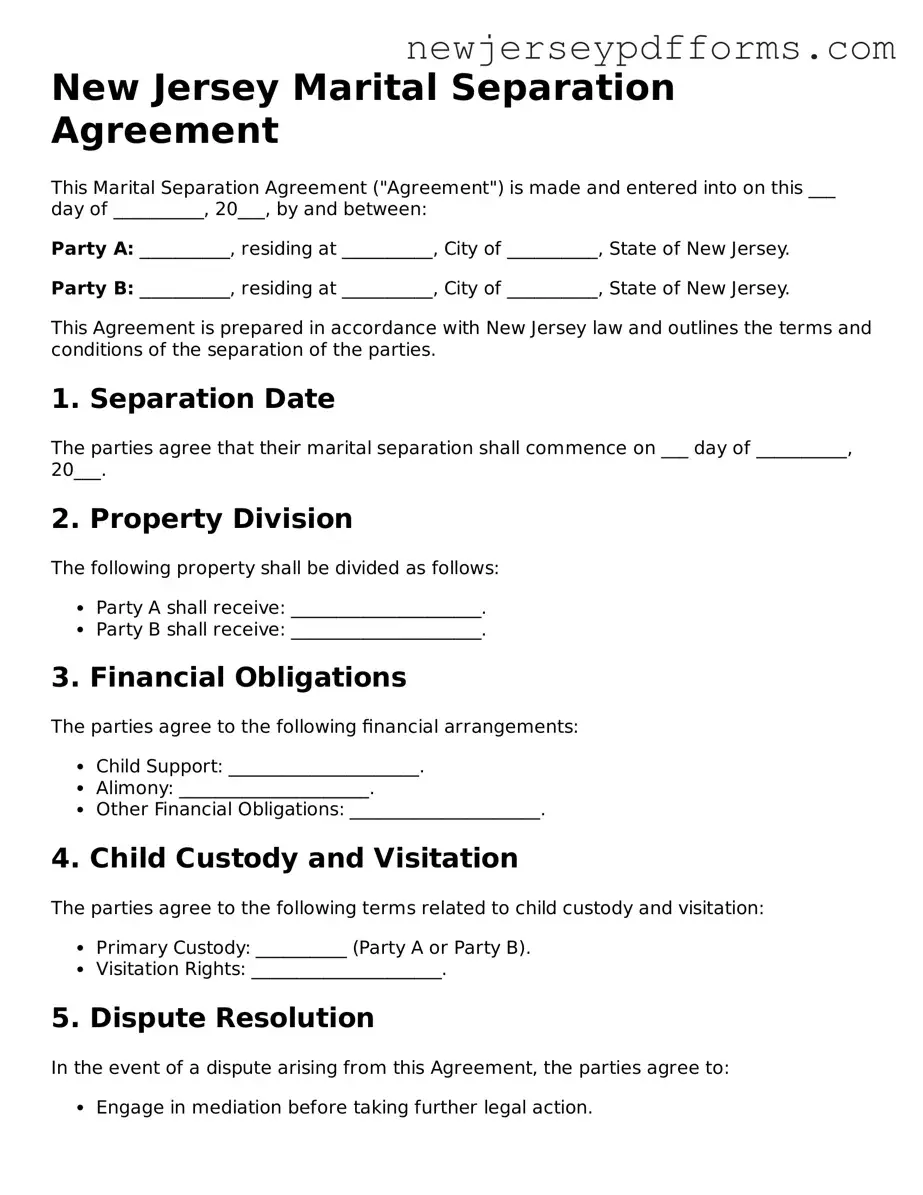What is a New Jersey Marital Separation Agreement?
A New Jersey Marital Separation Agreement is a legal document that outlines the terms and conditions agreed upon by spouses who are separating. This agreement addresses various issues such as division of property, child custody, child support, and spousal support. It serves to clarify the rights and responsibilities of each party during the separation period.
Why would a couple choose to create a Marital Separation Agreement?
Couples may choose to create a Marital Separation Agreement to ensure that both parties have a clear understanding of their rights and obligations while living apart. This agreement can help prevent misunderstandings and disputes in the future. Additionally, it can provide a structured approach to managing financial and parental responsibilities during the separation.
Is a Marital Separation Agreement legally binding?
Yes, a Marital Separation Agreement is legally binding in New Jersey, provided it is properly executed. Both parties must voluntarily agree to the terms and sign the document. It is advisable for each spouse to seek independent legal advice to ensure that their interests are protected before signing the agreement.
What should be included in a Marital Separation Agreement?
A comprehensive Marital Separation Agreement should include several key components. These typically encompass the division of assets and debts, arrangements for child custody and visitation, child support obligations, and spousal support details. Additionally, any specific agreements regarding health insurance, tax responsibilities, and living arrangements should also be addressed.
Can a Marital Separation Agreement be modified?
Yes, a Marital Separation Agreement can be modified if both parties agree to the changes. It is important to document any modifications in writing and have both parties sign the updated agreement. This ensures that the changes are legally recognized and enforceable.
What happens if one party does not adhere to the Marital Separation Agreement?
If one party fails to adhere to the terms of the Marital Separation Agreement, the other party may seek legal recourse. This could involve filing a motion in court to enforce the agreement. The court can order compliance and may impose penalties for non-compliance, depending on the situation.
Do I need a lawyer to create a Marital Separation Agreement?
While it is not legally required to have a lawyer to create a Marital Separation Agreement, it is highly recommended. A lawyer can help ensure that the agreement is comprehensive, fair, and complies with New Jersey laws. Legal guidance can be invaluable in protecting your rights and interests.
How long does it take to create a Marital Separation Agreement?
The time it takes to create a Marital Separation Agreement can vary widely. It largely depends on the complexity of the issues involved and how well the parties communicate. Some couples may reach an agreement in a matter of weeks, while others may take several months to finalize the terms.
Where can I obtain a Marital Separation Agreement form?
Marital Separation Agreement forms can typically be obtained from various sources, including legal websites, family law attorneys, or court offices in New Jersey. It is important to ensure that the form you use is compliant with New Jersey laws and is appropriate for your specific situation.

